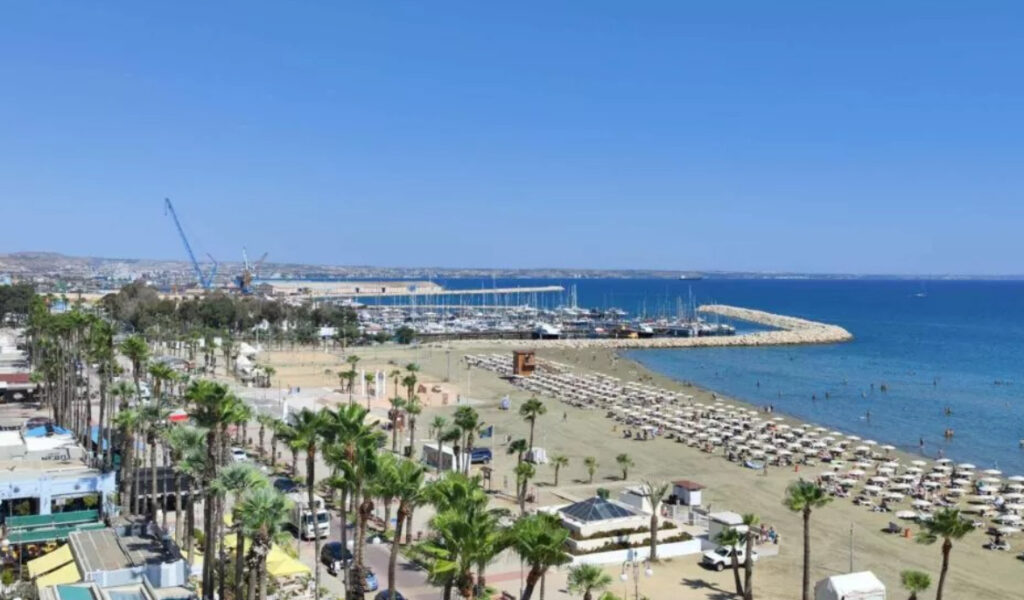Larnaca recorded the largest property price increases across Cyprus in the first quarter of 2025, whilst commercial properties declined, according to the latest RICS Cyprus Property Price Index with KPMG in Cyprus.
The coastal city dominated quarterly gains across all major property categories, with apartments showing the most significant increases compared to the previous quarter, the index revealed. Apartments in Larnaca showed the most substantial quarterly increases at 5.61%, followed by houses at 4.78% and offices at 1.72%. Warehouses recorded marginal gains of 0.82%, whilst retail properties declined 0.90%.
Year-on-year data revealed apartments leading national growth at 3.88%, followed by offices at 2.84% and houses at 2.00%. Commercial retail properties registered the only decline at minus 0.05% annually.
By city
Nicosia registered the lowest quarterly gains across property types, with apartments increasing 0.53%, houses 0.53%, and offices 0.52%. Famagusta showed moderate performance with apartments rising 1.13% quarterly, whilst Limassol recorded apartments growth of 0.89% and houses at 1.55%.
Paphos demonstrated mixed results, with offices leading at 1.72% quarterly growth but apartments declining 0.53% and warehouses showing negative movement.
Holiday property markets reflected similar regional patterns, with Larnaca recording the largest quarterly increases. Holiday apartments in Larnaca rose 3.14% quarterly, whilst holiday houses increased 3.00%. Other districts showed either minimal gains or negative values for holiday properties.
Rental market
Rental values continued annual increases across most sectors, with offices leading at 4.39% year-on-year growth, followed by apartments at 2.87% and houses at 2.51%. Holiday properties showed modest rental gains, with apartments up 1.56% and houses rising 2.26% annually.
Retail rental markets continued declining, falling 0.92% year-on-year, reflecting broader challenges in the commercial property sector.
Market outlook
Property yields remained relatively stable, with minimal movements recorded since 2024. Apartment yields stood at 5.39% compared to 5.44% in the previous year, whilst office yields increased marginally to 5.59% from 5.51%.
Christoforos Anagiotos, Managing Director and Head of Real Estate and Land Development at KPMG Cyprus, said: “The first quarter of 2025 presents an overall increase in property values in Larnaca, whilst other provinces record moderate increases. The largest increase is recorded in offices, followed by residential properties (apartments and houses). Small increases were recorded for warehouses, however shops recorded a decrease, continuing the trend of previous quarters.”
He added that rental prices increased, with the largest rise in offices, followed by residential properties, whilst shops recorded the lowest increase.
Simon Rubinsohn, RICS Chief Economist, commented: “The Cypriot economy has remained relatively resilient so far against rising geopolitical tensions. However, the increased level of global macroeconomic uncertainty inevitably suggests a more demanding policy environment. Nevertheless, the property market remains stable for now, with prices generally increasing.”
Housing crisis
Cyprus a severe housing affordability crisis, with 11.2% of its population experiencing housing difficulties compared to the EU average of 4.9%. Property prices surged 7.7% nationwide in 2023 and continue rising at 6.5% annually, while average wages remain stagnant at approximately €38,000 per year. The affordability gap has widened dramatically, with average apartment prices reaching €281,000 nationally and houses averaging €461,000, creating unprecedented barriers for local residents.
Foreign investment continues driving demand. Foreign buyers accounted for approximately 50% of all property purchases both in 2023 and 2024, with people from Ukraine, Russia, Belarus, Lebanon and Israel adding pressure to the market. Between 2022 and 2024, Cyprus experienced a 10% increase in the working population—about 40,000 people—creating significant demand shocks across all regions.
The crisis has prompted government intervention through the “Housing My Future” policy, including a €25 million Renovate-Rent scheme targeting 1,000 vacant units and grants for first-time buyers. However, youth emigration accelerates as housing costs combine with limited opportunities, whilst businesses in financial centres report office space shortages and costs “higher than London and Netherlands in some cases”.
Only 4% of Cyprus’s housing stock qualifies as social housing, among the lowest rates in Europe.



